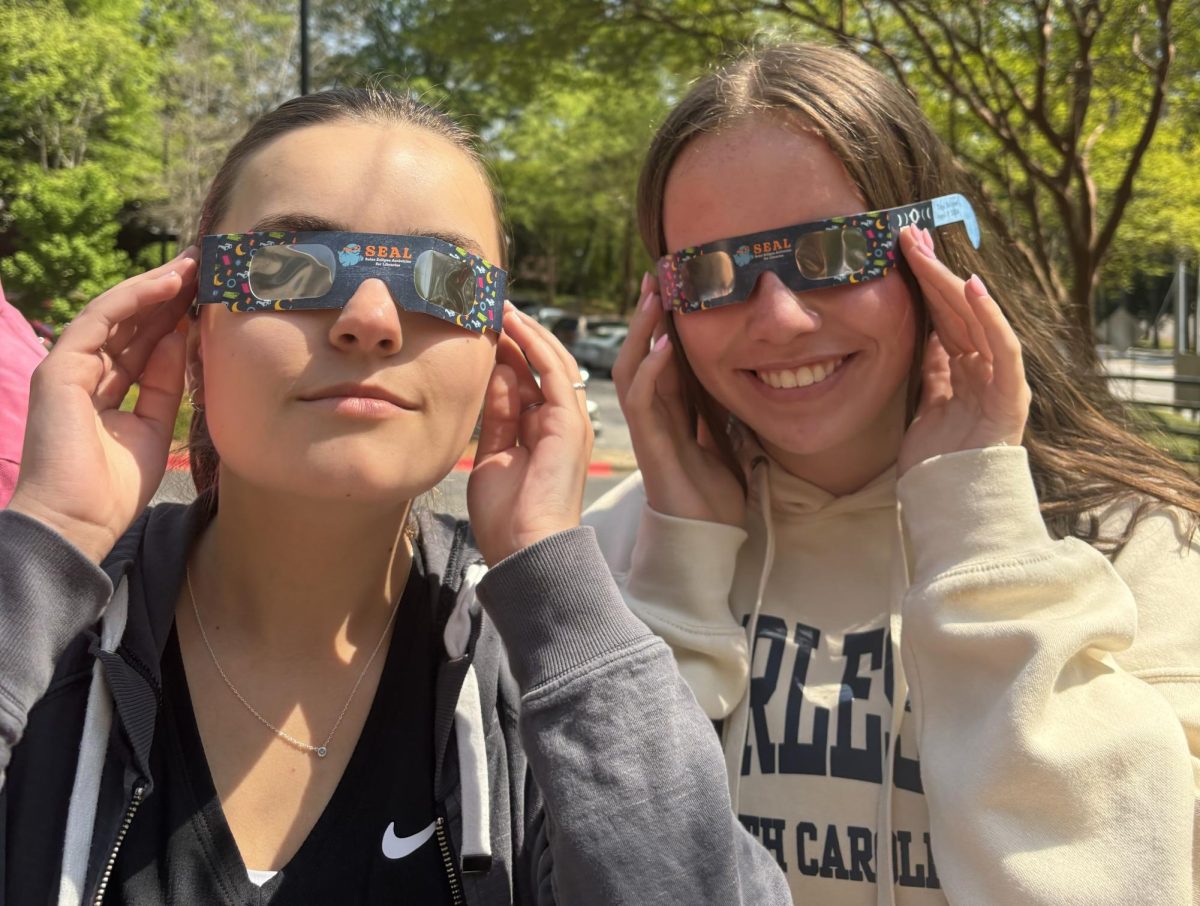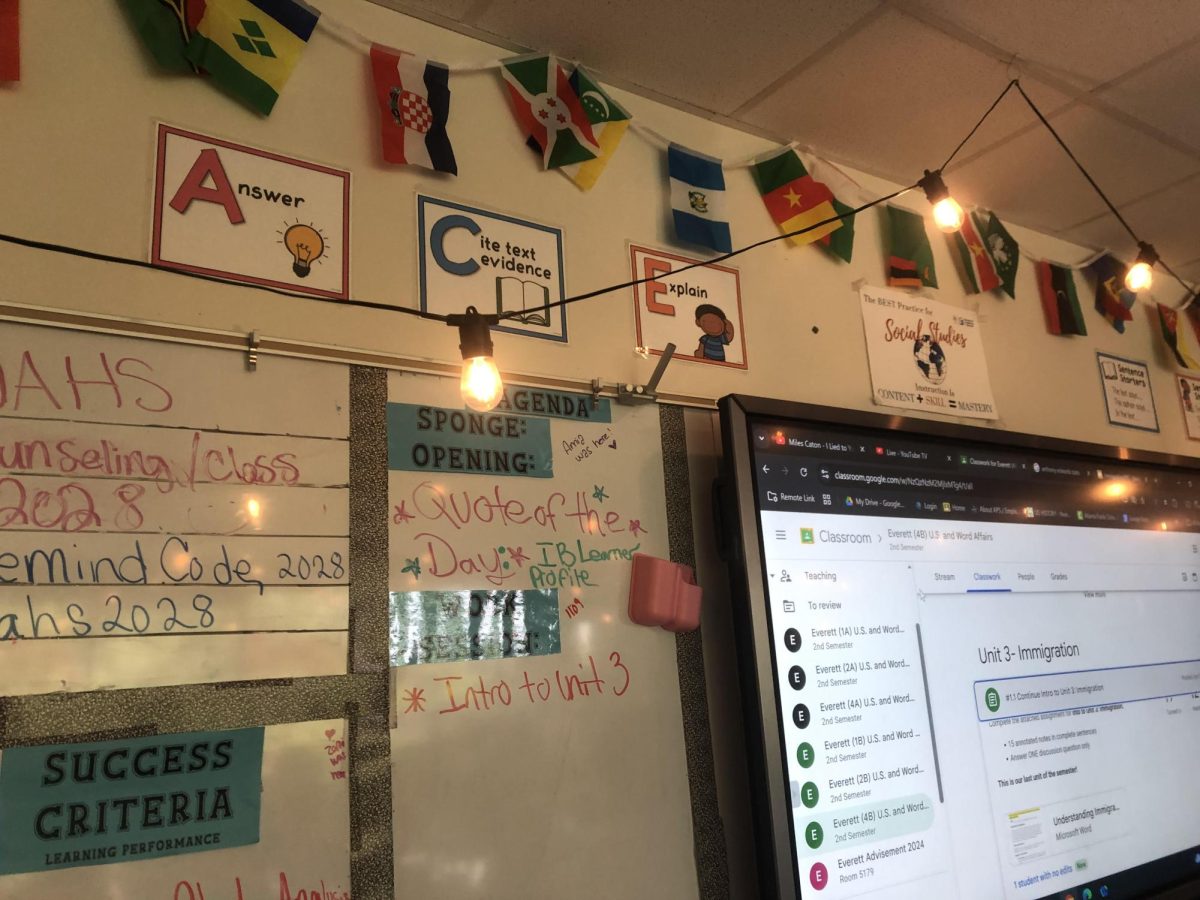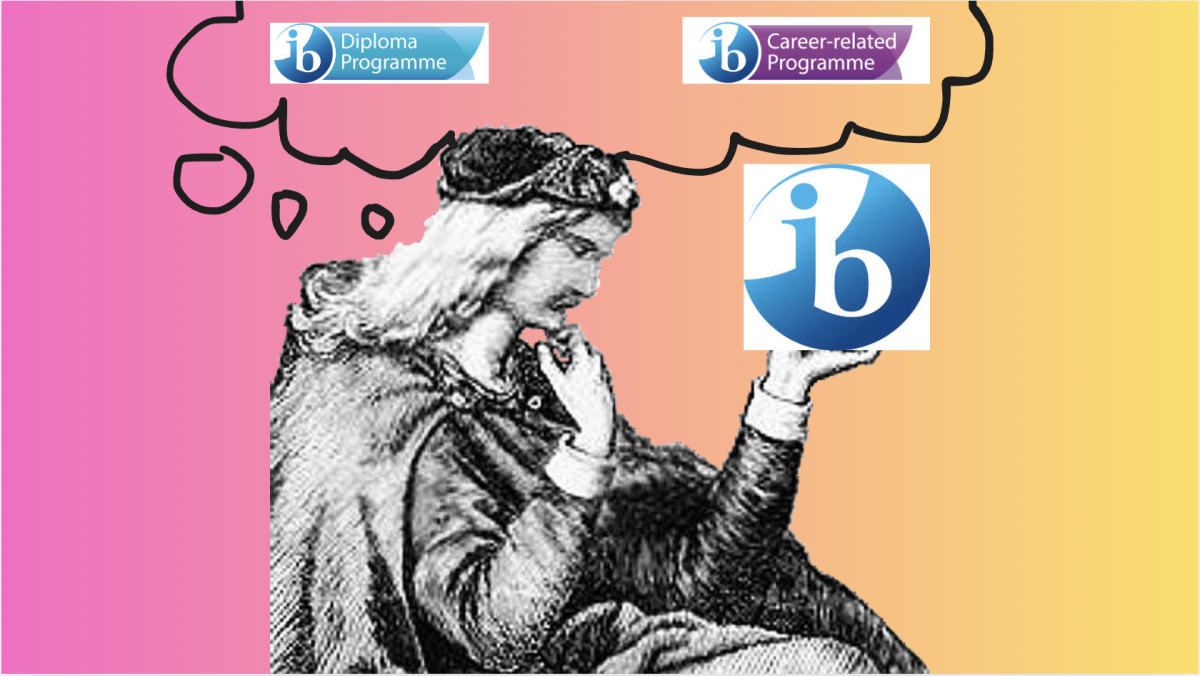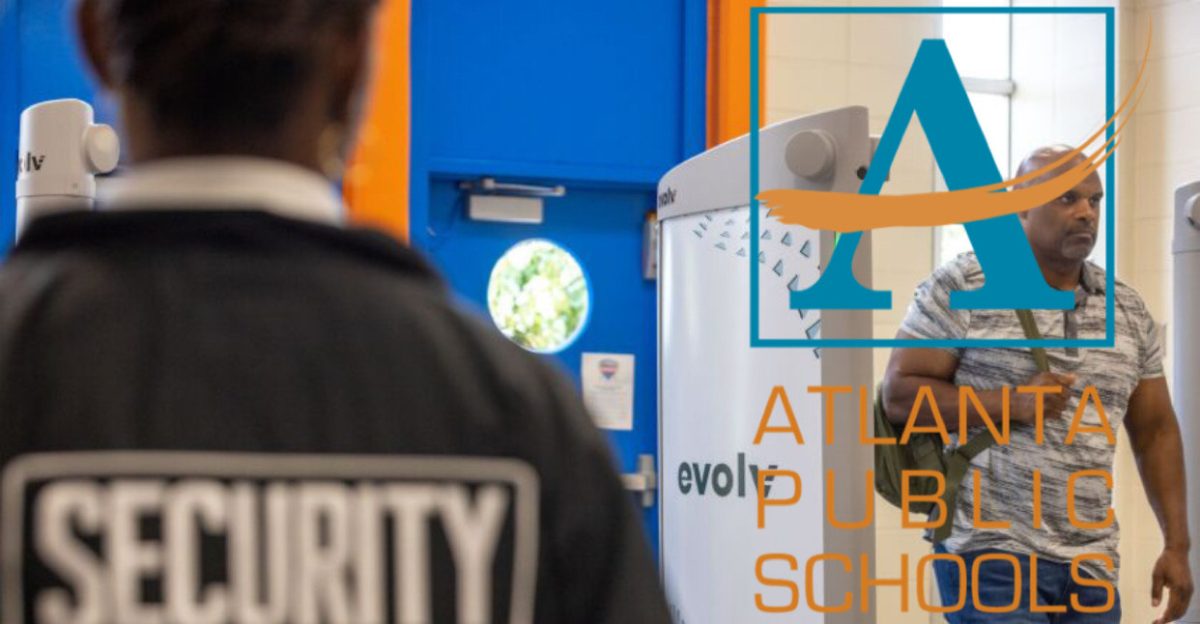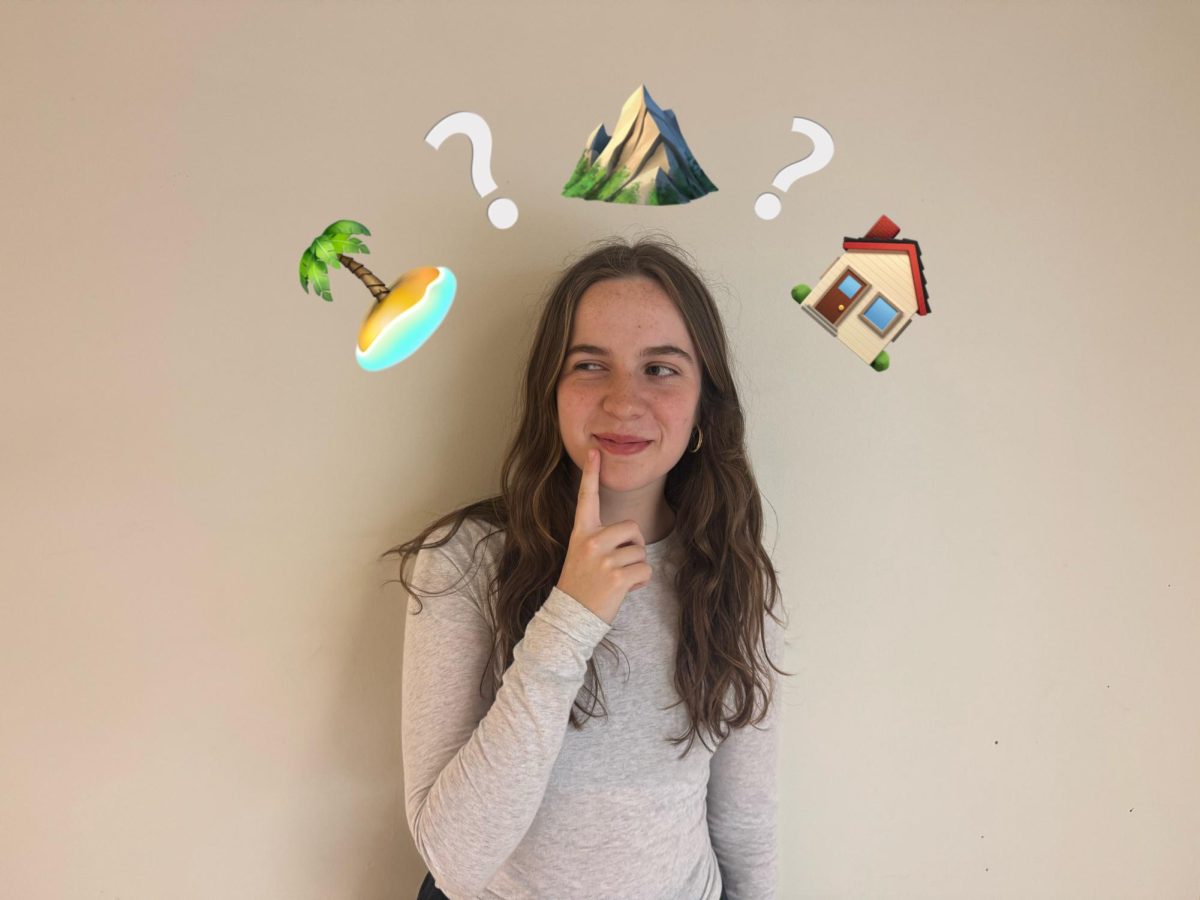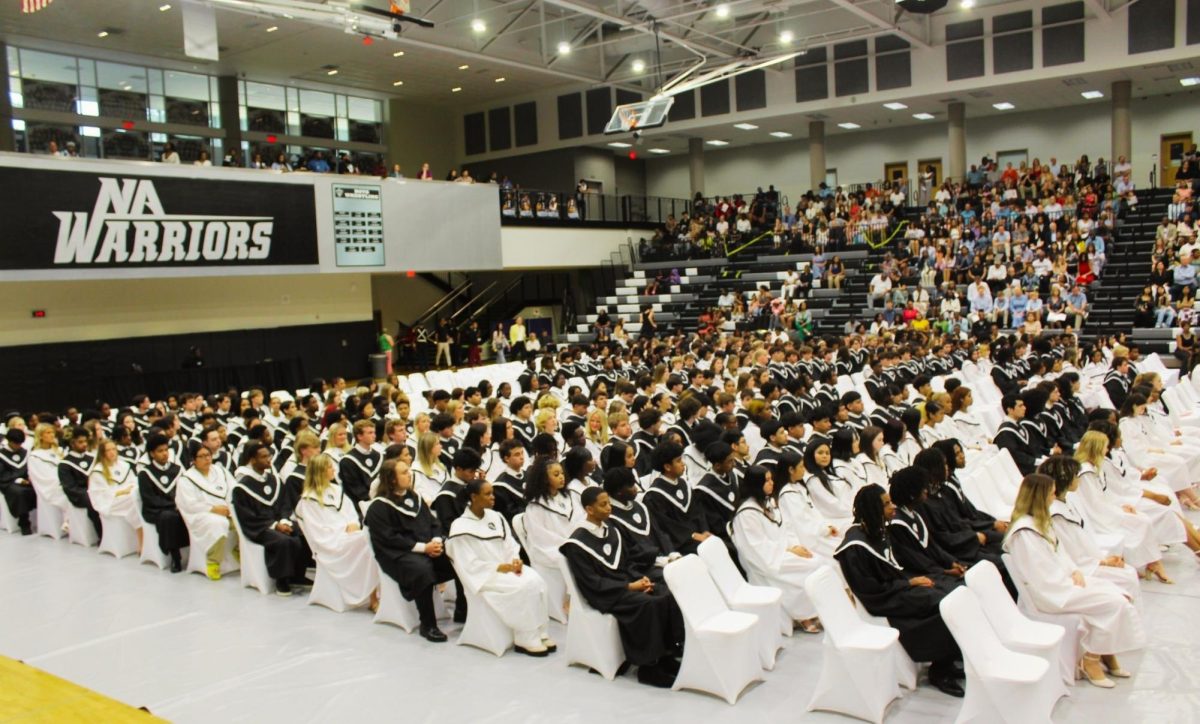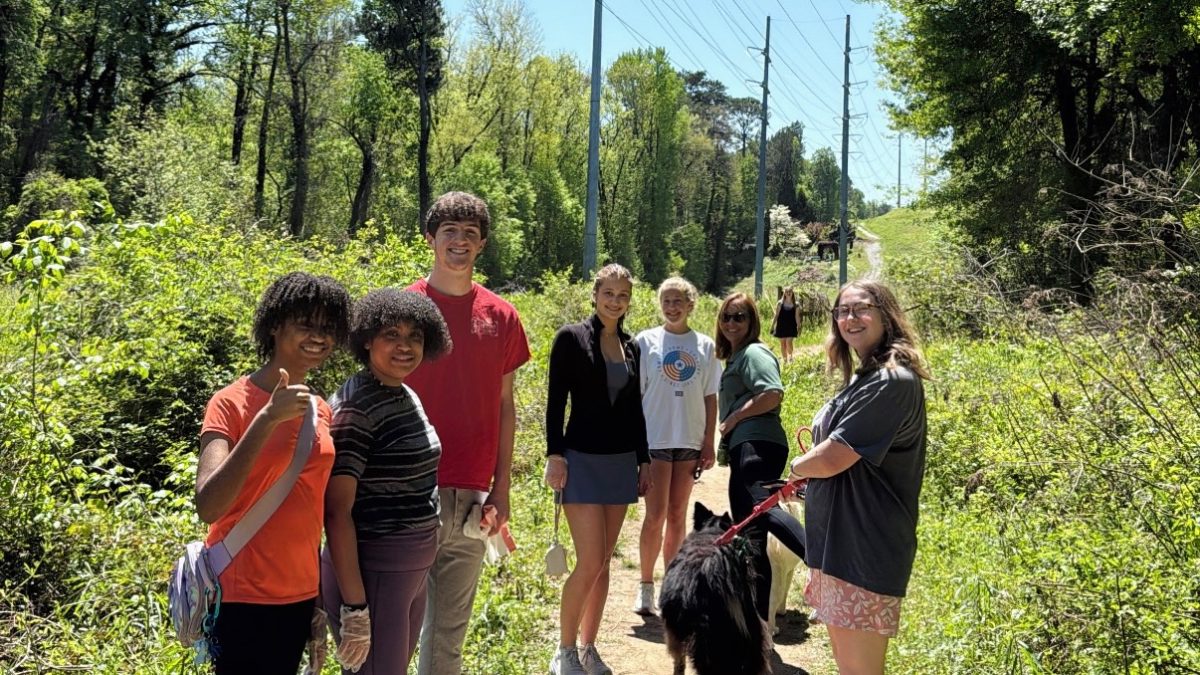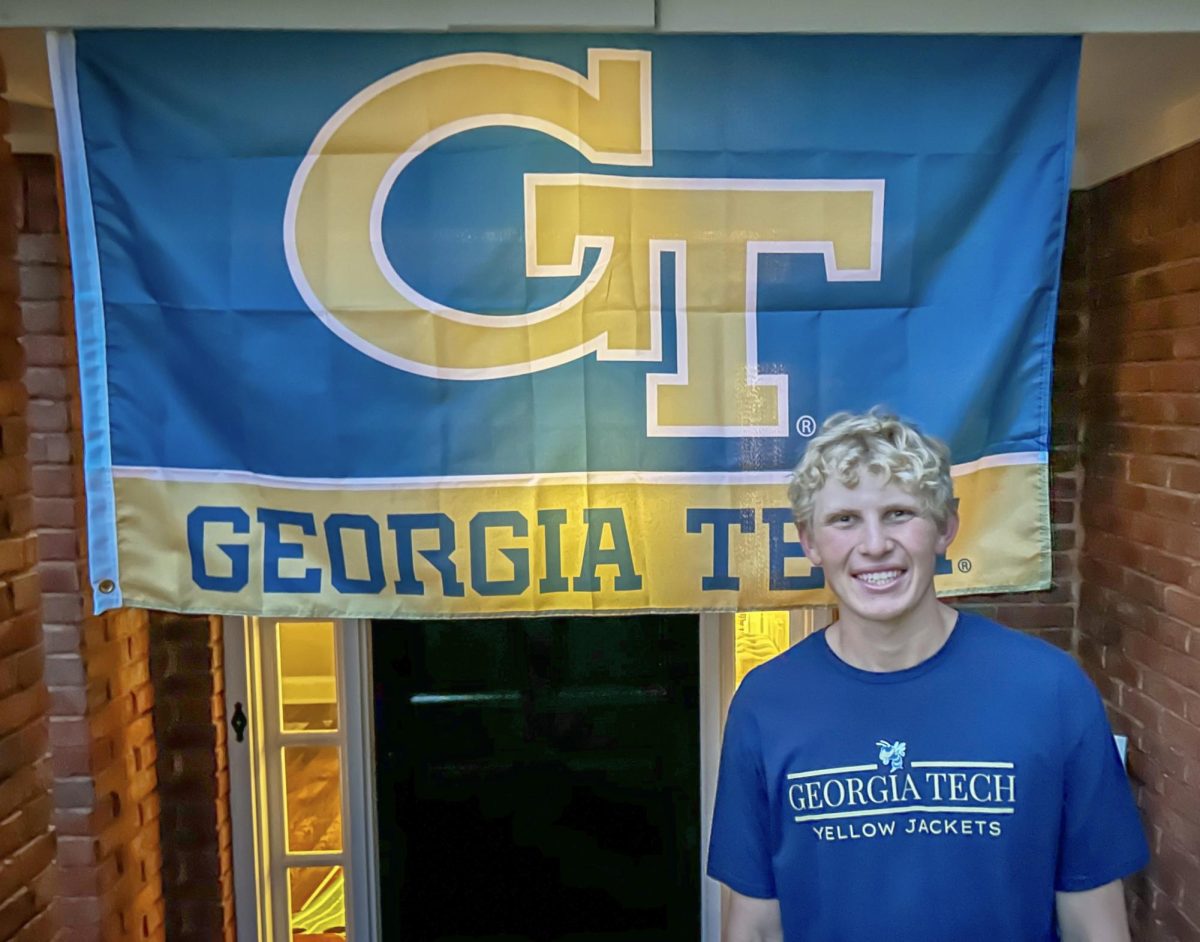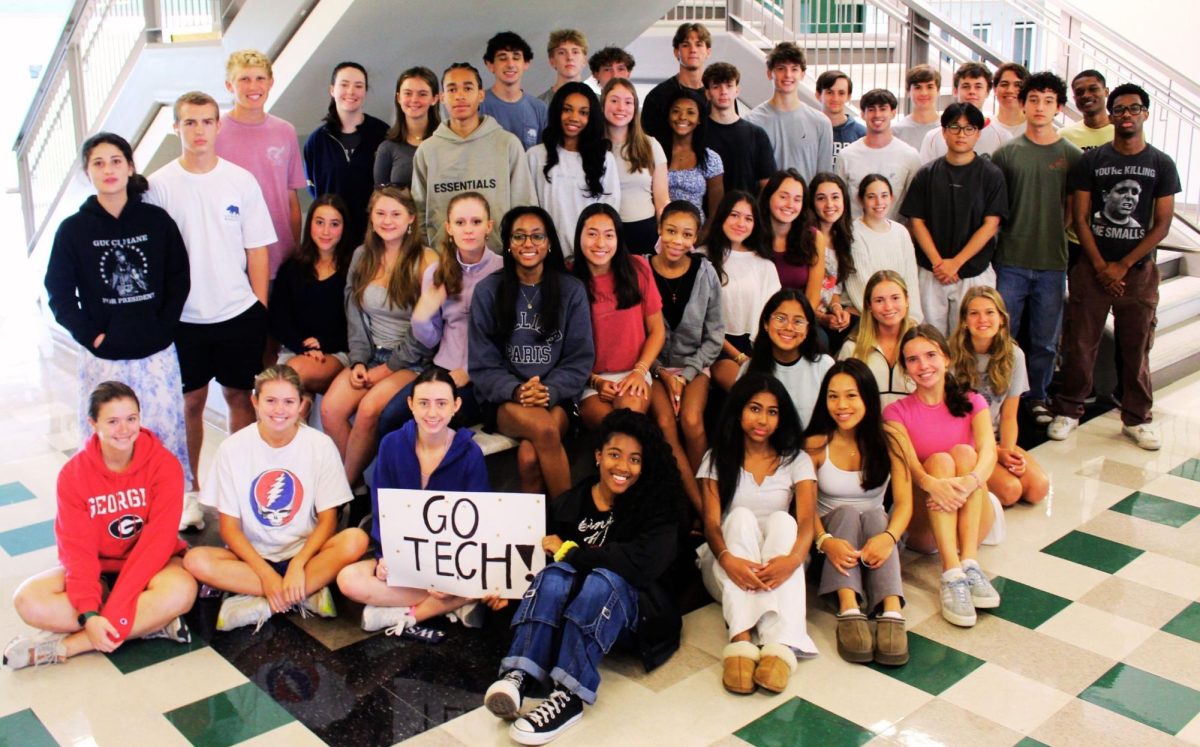On Monday, April 16, at approximately 2:40 p.m., masses of Dubs began flocking to the practice field. What could explain this abnormal migration other than the interstellar event taking place that afternoon? While North Atlanta High was not in the path of totality, Dubs still enjoyed witnessing the shadow of the moon pass in front of the sun – with proper eye protection of course. A rare cosmic phenomenon, the last eclipse observed in Georgia was on August 21, 2017, and the next won’t be until August 22, 2044.
The last time the majority of North Atlanta students witnessed an eclipse was seven years ago. Junior Mali Piernik fondly remembers the afternoon that she spent watching the eclipse out on the field of her alma mater, Garden Hills Elementary. Piernik recalls the buzz of anticipation that hung in the air of her fifth-grade classroom, as the average fifth grader has never seen an eclipse before, especially not one in totality, and they did not know what to expect. Around 2 p.m. (and after many reminders to not look directly at the sun), students filed out onto the school’s field and settled on towels and blankets to watch the show. “I remember seeing the tiny, orange sliver of the sun through my glasses,” said Piernik. “All of the bugs started chirping like it was nighttime! It was one of the coolest things I had ever seen at the age of 10 and one of my all-time favorite memories from elementary school.”
So how did this year’s eclipse stack up? For the majority of the day, it was unclear whether or not North Atlanta was going to have an official school-wide viewing of the eclipse, but at the start of the fourth period, a few astrophile teachers allowed students to venture outside as long as they had their protective eyewear. Students scattered across the school’s outdoor areas, from the practice field to the lunch tables outside of the gym. Among them was junior Vivian Carroll, who, like the majority of the student body, had high expectations for the event. This high standard was arguably set by the last eclipse, due in part to the totality of the last eclipse, and in part to the idealistic, nostalgic lens through which we view our childhood memories. As it drew nearer to 3:04 p.m., the familiar hum of anticipation could be heard across the practice field. “There was barely a shadow! It was honestly underwhelming,” said Carroll. “My parents traveled to go watch the total eclipse in Kentucky and they said it was amazing, so I might travel to see it next time.”
Unfortunately for Vivian Carroll, next time isn’t for another twenty years. Where will all the North Atlanta students be next time the state of Georgia witnesses a total eclipse? A very existential question, and a difficult one for high schoolers considering the endless possibilities on their horizons. Junior Morgan Todaro aspires to be somewhere near the beach, working as an attorney. Junior Anna Hammond will be living in Austin, Texas, practicing sports medicine. Others are more unsure. “I’m not really sure what my life will be like in twenty years,” said Sophomore Sarah Kate Gleason. “But I know I can’t wait to watch the eclipse!”
As the sun gradually reclaimed its spot in the afternoon sky on Monday, the students of North Atlanta returned to their classroom, carrying with them the memories of this cosmic event. While some found this year’s eclipse to be less awe-inspiring than its predecessor, the event served as a reminder of past memories and the cyclical nature of life. And though the next eclipse may be two decades away, the anticipation of witnessing such a rare spectacle once again unites students through a sense of shared wonder and curiosity.


